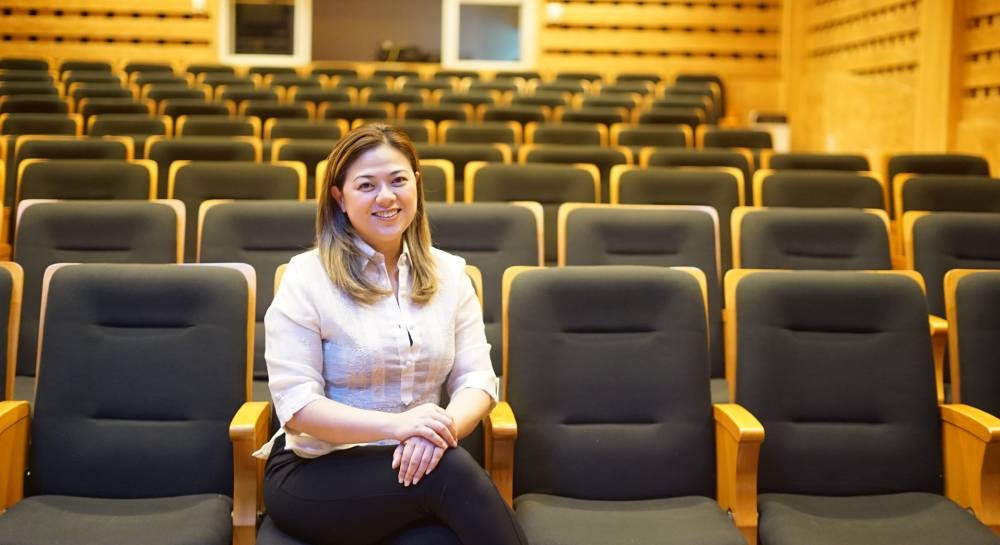FDCP's 10-Point Agenda for the Philippine film industry

BTS Goals. Be The next South Korea. No one can deny the explosive success of the South Korean brand in the global market. Hallyu, or the "Korean Wave," created a phenomenal growth of Korean culture and popular culture encompassing everything from music, games, cuisine, and especially their cinema. For most countries, this is the dream.
South Korea, however, did not make this happen overnight, not even in one to three years. It took them decades of consistency and intentional effort to get to where they are now. It took the collaboration of the government and the commitment of the private sectors to see the global potential of the entertainment and media industry as a critical driver for the future national economy and a catalyst for building their country's influence on a global scale.
As we turn another page in our history, I am also reminded of the immense honor for me to continue to lead the country's film agency for another three years with my appointment.
The next three years of my term under a new administration is an incredible opportunity to continue with what we have begun, to strengthen further the relationships we have fostered among the regions and with the international film community in the past six years, and align with this new government as we work hand in hand to rebuild our country and recover from the blows of the pandemic.
In preparation for this new chapter, the agency has identified priorities and goals to guide us in translating our dreams into plans and transforming our good intentions into practical actions.
How do we bring into fruition our dream of being Asia's next success story? I'd like to share the Film Development Council of the Philippines' 10-Point Agenda Proposal for the Philippine film industry.

No. 1. Operational excellence
FDCP's priority is to give the most efficient service to our stakeholders. With this in mind, we would like to improve our processes and internal structure within the agency constantly. Right now, and with the help of the Development Academy of the Philippines, we are working towards an ISO-QMS certification that will streamline and standardize the programs of the divisions in the agency. This will also make for a smoother delivery of output from staff and a more conducive and productive space for them. The better systems we develop, the better services we can give.
No. 2. Nation rebuilding through cinema
How South Korea has been the most successful in innately and intrinsically showcasing their culture, identity, and traditions through their films and content is truly inspiring. Its film and entertainment industries were pivotal in promoting their tourism, and international trade as their stories and narratives exuded all things Korean — food, music, style, even values, and customs. The Hallyu effect became a natural phenomenon, and a big part of how that came to be is through films and stories.
FDCP recognizes that film has indeed become a subtle yet powerful tool for disseminating a nation's self-image domestically and internationally. With this insight in mind, we aim to encourage the production of more stories and films that introduce who we are to the world — our country, our diverse cultures, and our past and present. Let's celebrate who we are as Filipinos through our films.
No. 3. Skills training and development programs
As the backbone of the film industry, it is imperative to invest in the skills training of the workforce in the industry, especially on the technical and technology side. By professionalizing our film workers through education and skills training in the technical and creative aspects of the industry, we allow our workforce to elevate their skill sets, lessen their vulnerabilities, and increase their career options. We have already started this with FDCP's Behind the Scenes Academy, which recently concluded its first installment of intensive acting training for background actors earlier this month.
Studios worldwide have been choosing the UK to do their productions because of its reputation for having a skilled workforce — not just actors, directors, or producers — but carpenters, set designers, makeup artists, etc. Like in South Korea, this came to be because of the UK's investment in education and skills.
No. 4. Enabling laws and policies
Part of the priorities will be to push for more sector-specific laws and policies to create a healthy film industry ecosystem. We will strengthen the programs that we began to champion workers' rights to fair wages and safe working conditions and continue to lobby for the enactment of the Eddie Garcia Bill into law. We need to look after our film workers by creating an industry where their economic needs are met and their safety at work is taken care of.
Aside from protecting film workers' interests, we also need to create framework and policies on IP (intellectual property) rights and guidelines for distributing Filipino films in cinemas and other platforms. These enabling laws and policies will allow our creators to work within an environment that will make our industry more sustainable. We must have the structures to standardize systems and regulate processes.
No. 5. Financial incentives and capital investments
Production grants and coproduction film markets have become a welcome opportunity for film outfits to realize their visions. There is also much to explore in venture capital investments for productions as we aim to be a globally competitive industry. We need more significant funding to realize the best versions of our films. FDCP intends to maximize these opportunities by providing funding as an agency and facilitating and bridging connections and vast financial and industry-specific business knowledge to our stakeholders.
Specifically, we expect to reach this goal in three ways — by expanding the FDCP's FilmPhilippines Incentives and CreatePH Film Fund to invest in the production of domestic and international films; encouraging international co-productions between the Philippines and the rest of the world; and investing in technology and equipment that will improve the quality of films in the country, especially technical aspects.
No. 6. Global Filipino cinema
The world has seen Filipino films' artistic merit and commercial viability through our participation in international film festivals and film markets under the FDCP's UniPhilippines program.
These films have become our artistic portfolio to the international community. We build our global presence and position the Philippines as a global player and collaborator in the international market through these exposures. We also get to network with countries and platforms that will consume Filipino content in the commercial market. One key to the success of Korean cinema is its filmmakers' ability to address issues that resonate with domestic audiences through genres and styles that have universal appeal.
No. 7. Diversity of content through regional cinema, animation, and documentaries
Beyond full feature films, we believe that there is still much to expand on and support in the ways and forms that we tell our stories. With regional cinema, the country's more than 7,641 islands present a wellspring of narratives, genres, and executions that we are yet to see. Our continued support for film festivals and regional film productions through the FDCP's Cine Lokal program is key to introducing these stories to our audiences.
On the animation front, there are teeming movements toward the development and production of IP content. We are set to see the fruition of several original stories from our animation filmmakers that we have supported. Finally, Filipino documentaries have found their space and spotlight locally and internationally. Through partnerships with several organizations for production support and participating in markets specializing in the format, we hope to empower more filmmakers to pursue this genre.
No. 8. Promoting the Philippines as a filming destination
To this end, FDCP seeks to improve the one-stop-shop processes to make filming easy for foreign productions. We will also be enhancing the incentive schemes in bringing foreign productions to the country.
Aside from exposing our pool of talents to global standards and showcasing the beauty of the Philippines, having the country as a go-to filming destination opens up new avenues for our films and our filmmakers to have a wider reach. International film outfits impact our economy. It creates jobs for our homegrown pool of film workers and generates revenue for service providers in the country.
No. 9. Philippine Film Archive heritage building
As of 2021, the FDCP's Philippine Film Archive has 41,443 elements, with 12,796 acquired in 2021 and has restored 291 titles. PFA's archiving and restoration efforts are essential in fulfilling the agency's mandate of protecting the nation's historical, cultural, and artistic legacy and heritage.
With this vision, PFA is set to establish a permanent archiving facility that will further empower the Agency to acquire, preserve, digitize, and protect more of our film and audiovisual collections and provide better access to our audiovisual contents to the public. Its engagement and participation in international archiving fora and organizations will enable best practice sharing and repatriation of Filipino titles from around the world.
No. 10. Position the Philippines as the hub for Southeast Asian content
Earlier this year, the FDCP and Tatino Films of France signed an agreement for a long-term partnership through Full Circle Lab Philippines Horizons 2025. This has been one of the concrete steps we are taking toward making the Philippines a creative hub for filmmaking in the Southeast Asian region.
From here, the FDCP is off to a good start in creating more programs and initiatives that will activate the participation of filmmakers and talents in the Southeast Asian Region. We are also looking into supporting public funding for the region, especially those working with Filipinos as producing partners.
The next chapter
These ten goals are already at the heart of the agency's operations. We will fine-tune each program and initiative to make them more effective by strengthening and expanding what is already in place. These are pertinent to railroading the Philippines' own success story.
It is the vision of the FDCP to develop a globally competitive film industry that not only champions Philippine culture and realities but also contributes to the country's economic development. There is a massive amount of work left to do for Team FDCP, and we are gearing up for another productive chapter.
Notes from the Chair
The Sunday Times Magazine - The Manila Times
Notes from the Chair is part of the Arts Awake section of The Sunday Times Magazine published by The Manila Times. Click HERE to view the article on The Manila Times website.





